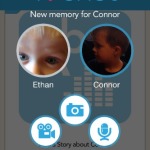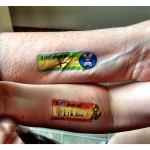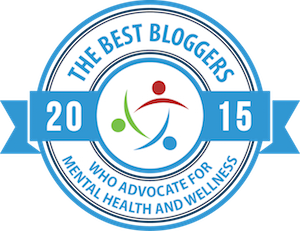A friend of ours used to be a total Facebook holdout. Wasn’t interested, considered it all hooey, didn’t want to get sucked in – he had all the usual reasons people choose not to join Facebook. And then one day a friend request from him showed up in my inbox.
A lot of people (my husband, for one) give in sooner or later (in some cases because they get tired of watching their wife’s Facebook feed over her shoulder and want to get in on the action themselves – or so I’ve heard). But this particular guy had a different reason – he has three kids, and he figured he is going to need to know what this stuff is about. Good logic, I thought.
I know a couple of people with kids below that magic age-13 mark who have Facebook accounts. At first this freaked me out. (And frankly, I’m not so sure I suddenly become okay once a kid turns 13, but this is coming from someone who thinks kids should be way older than 16 before they get a driver’s license (and here they get a learner’s at 14 – ack!) so take that as you will.) But then I saw how some of these people dealt with their kids’ accounts. They were restricted, of course, and I think you’d have to be up on all the Facebook privacy stuff in order to really be sure that you’ve done what you can to protect them. But there’s still so much they can be exposed to. And so much info Facebook (and third parties, through apps) can collect.
Does this freak anyone else out?
It’s going to be years before my kid is really a candidate for a social media account, and, at least in the early years, I think it’s relatively easy to be a helicopter parent when it comes to social media. But still — and maybe this is my anxiety monster talking — this whole thing is one aspect of parenting I dread.
I’ve had several conversations about this with family and friends and I think about this a lot – when I see my friend posting (he does seem to enjoy Facebook, despite his initial reluctance) or another talking about something awesome her daughter did and tagging her in the post.
Is that the secret – being friends with your child(ren) so you can see what they’re up to? Is this one of those put-the-computer-in-the-living-room-so-you-can-see-what’s-going-on sorts of things? Where’s the line between an appropriate amount of helicoptering and managing this for your kids to the point where they don’t truly understand the implications themselves?
This came up again as part of the kIDSure Ambassador program I’m participating in (so yes, that’s what prompted this post) and of course their suggestions were around identity theft (and they’ve got some great child identity theft tips). This is another thing to worry about but of course something that’s very important to be aware of. Some of the questions coming out of that program were about having an online use contract with your kids – questions like:
What should be written into the contract?
How old should your kids be in order for it to be created?
How old should they be to go online alone?
Should the contract change over time according to various situations, or depending on your kids’ ages?
I’m not sure I know the answers to some of these questions. At least not yet. And I’m not sure that a formal contract is the way to go. Do we write something down and make our kids sign it? Or are there certain things that are just expectations – we expect them not to share certain information online with people they don’t know just as we would tell them not to give a stranger their address at the park. Isn’t it the same? Or am I oversimplifying this?
Would love to know your thoughts, especially if you have older kids. This is not something I want to screw up.
The part where I give you some resources on this topic:
Identity Guard® has been around for more than a decade, using technological solutions to protect people from the threat of identity theft. At the first sign of certain kinds of activity involving your personal information you get an alert. There’s also comprehensive child ID theft protection now available in kID Sure℠. We all know there are countless online threats, but IDENTITY GUARD helps keep you and you family safe. Get Identity Guard and the information about identity theft and how to help prevent it. If you’d like more info, you can download three free e-books.
And a disclaimer: yep, I do receive compensation for being part of this program but the awareness is worth a lot to me too.

















